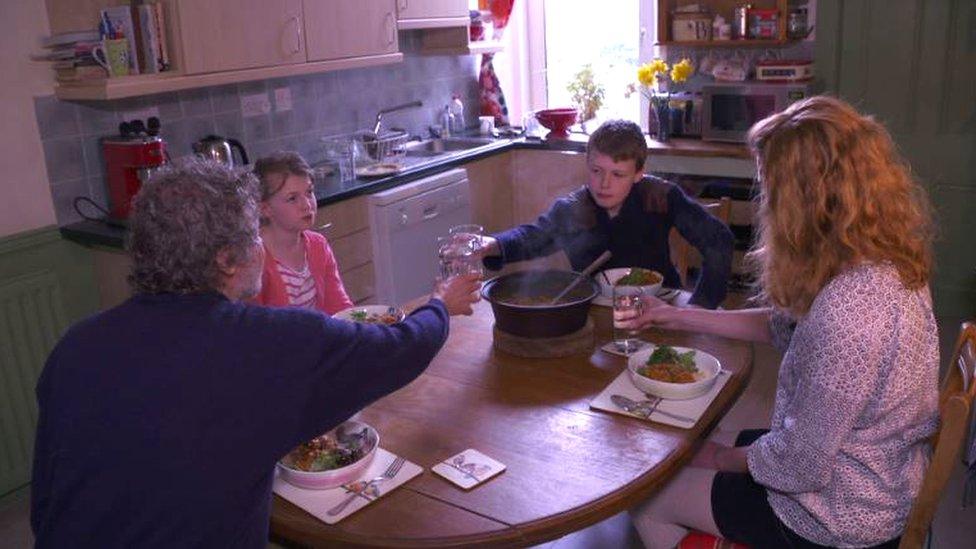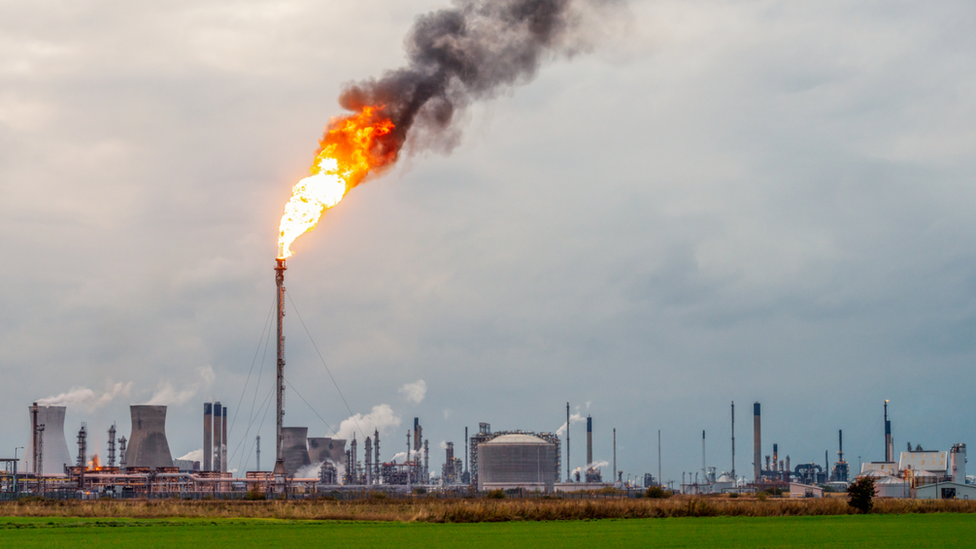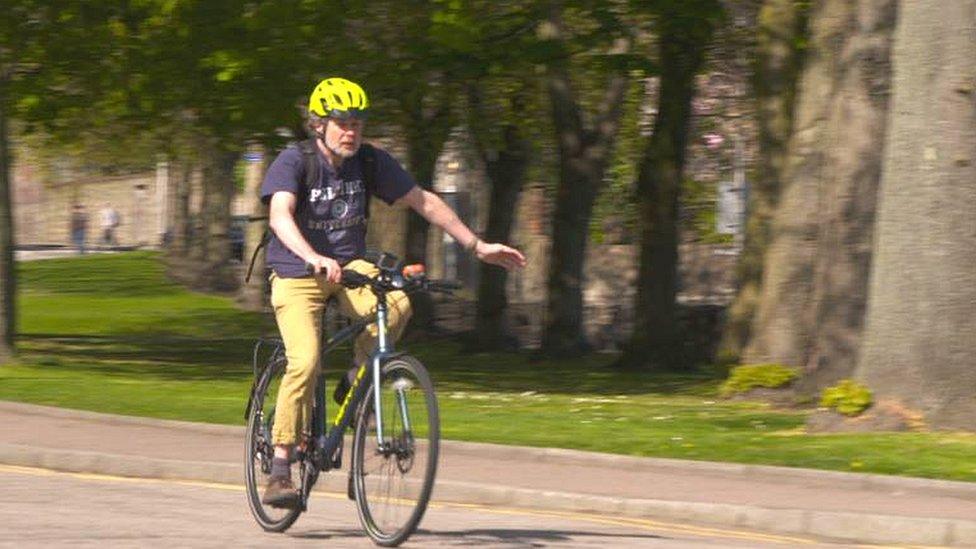The Aberdeen family embracing a low-carbon lifestyle
- Published
Ahead of the publication of advice to the Scottish and UK governments on when to aim for net-zero greenhouse gas emissions, BBC Scotland's environment correspondent Kevin Keane has been finding out what it's like to live a low-carbon lifestyle.
Meet the family embracing a low-carbon lifestyle
Meet the Martins, living a low-carbon lifestyle in Aberdeen.
Mum Rachel and dad Ben head the family, then there's their two children Elizabeth, 9 and Daniel, 12.
They live on a plant-based diet meaning they don't contribute to animal emissions.
The kids still eat meat occasionally if they're out in a restaurant, but not at home.
Dinner is yellow split peas with home-grown Swiss chard, which smells delicious.
"Some people think that when you follow a plant-based diet you have to cut foods out, but actually there are 20,000 edible species of plant in the world," Rachel said.
"Rather than viewing it as restricting your diet, I look at all the other foods I can include."

The family's plant-based diet means no meat or dairy products
Agriculture is one of the sectors which contributes significantly to greenhouse gas emissions, so a plant-based diet is easier on the environment than one including meat.
The UK and Scottish governments have asked for advice from the Committee on Climate Change , externalon when they could and should become "net-zero."
That's the point at which the greenhouse gases we emit and absorb, through things like tree planting, are balanced.

Rachel says most people think they're a bit weird
One of the other big polluters is transport - but the Martins have ditched the car, although they do occasionally hire one.
Rachel gave up her last job, which involved international travel, to instead work from home in IT support.
Lecturer Ben takes his bike to work at Aberdeen University.
He said: "When we moved here we were in no hurry to get a car and we decided that we'd see how we got on without one.
"We've managed quite well with that as a family so we have no regrets.
"It's quite liberating, I think, not having to worry about parking or anything like that."

What does net-zero mean?

The terms carbon neutral and net-zero are often used interchangeably but there are differences.
Carbon dioxide (CO2) is the most abundant greenhouse gas but there are others which the Scottish government counts and they are not all carbon-based.
Therefore, some climate change campaigners prefer the term net-zero as it includes not just CO2 and methane but also nitrous oxide, which is emitted during agricultural and industrial activities as well as from fossil fuels.
Simply being carbon neutral would not stop global warming because these other gases are also harmful to the atmosphere.
Perhaps an even better term would be "climate neutral".

The Martins grow a lot of vegetables at home or on their allotment.
Rachel buys most of her outfits from charity shops and rejects "fast fashion".
Elizabeth and Daniel mostly wear new clothes and Ben rarely buys any.
They don't live in a commune of like-minded people but rather in a double-upper apartment in the affluent Ferryhill area of the city.
'Not evangelical'
Rachel said: "I think people think we're a bit weird, truth be told. I think I'm probably the nutty Australian."
"Yeah, with the kids in the cargo bike," adds Ben.
They are not evangelical with friends about low-carbon living but would like to see more people adopting similar principles.

The Martins have no car and instead walk and cycle to work and school
Rachel said: "I'd love it if everybody could do this but I also know that it's not an option for some people.
"We're quite lucky, we live very centrally. We can walk to the centre of town, we can walk to the train station."
An online calculator revealed that the Martin family's carbon footprint is approximately 74% lower than the national average.
But the switch from low-carbon to net-zero is not an easy one.
Societal changes
"It's practically impossible at the moment to live a zero-carbon lifestyle," explains Dr Rachel Howell, a lecturer in sustainable development at the University of Edinburgh.
"We'd need societal level-changes for that to be possible rather than just individual choices.
"It is possible for most individuals and households to reduce their carbon footprint and some people can find that they are living quite a low-carbon lifestyle."
Societal changes would mostly come about as a result of policy changes at government level.
Perhaps Thursday's advice from the Committee on Climate Change will be the catalyst for that change.